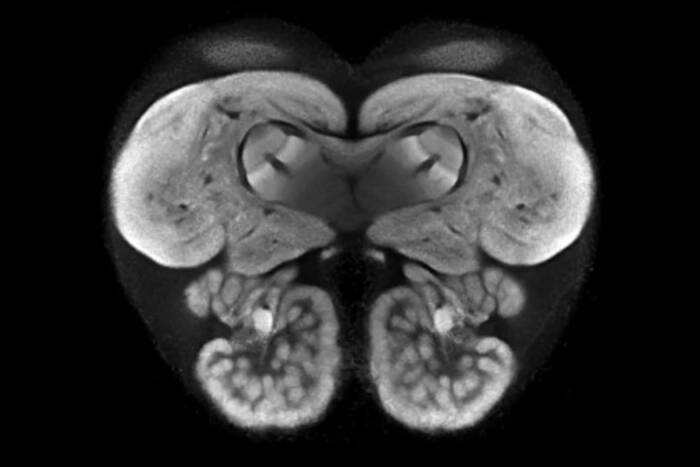Five Rockefeller scientists receive high risk-high reward NIH grants
An unprecedented number of Rockefeller University faculty have been awarded prestigious five-year grants under the High Risk High Reward program supported by the National Institutes of Health Common Fund.
Robert B. Darnell and Thomas Tuschl are each receiving a 2012 NIH Director’s Transformative Award and Daniel Kronauer, Gaby Maimon and Luciano Marraffini are being given 2012 NIH Director’s New Innovator Awards.
The Common Fund, which awards the Transformative and New Innovator Awards as well as the NIH Director’s Pioneer Awards, is providing 81 grants totaling $155 million through this year’s programs to investigators across the country to encourage risk-taking research in biomedical and behavioral sciences that has the potential for high-impact innovations. The NIH Common Fund was enacted into law by Congress through the 2006 NIH Reform Act to support trans-NIH programs with a particular emphasis on innovation in disease-specific research.

A bug’s life. The ant Cerapachys biroi will be used as a new genetic model system to study the effects of social interaction on physiology and behavior as part of Daniel Kronauer’s project, supported by the NIH’s New Innovator Award. Credit: Daniel Kronauer
“These awards underscore Rockefeller’s unique commitment to hiring scientists who are driven to push boundaries in biomedicine and tackle problems with new and transformative approaches,” says Marc Tessier-Lavigne, the university’s president. “We’re proud to have a record number of Rockefeller faculty receiving these esteemed grants this year.”
The Transformative Award was established in 2009 to promote interdisciplinary research on as yet untested ideas — research that has the potential to create or overturn fundamental paradigms. Darnell is a Howard Hughes Medical Institute investigator, the senior attending physician at The Rockefeller University Hospital and the Robert and Harriet Heilbrunn Professor in the Laboratory of Molecular Neuro-oncology. His lab focuses on understanding a group of rare brain diseases, the paraneoplastic neurologic disorders, and how they arise in conjunction with immune responses to cancer. The Transformative Award will support Darnell’s study of the dysregulation of RNA, which is increasingly recognized to lie at the root of many human neurologic diseases, using a breakthrough technology developed in his lab, called HITS-CLIP, and a new method, synaptic translational profiling. The studies could bring new insight into degenerative diseases of memory such as Alzheimer’s.
Tuschl, also a Howard Hughes Medical Institute investigator and head of the Laboratory of RNA Molecular Biology, investigates gene regulatory mechanisms that are triggered by double-stranded RNA and RNA-binding proteins mostly in human cells, with the goal of developing a new generation of therapeutic treatments for genetic diseases. The award will fund his research into the interaction network of mRNA-binding transport and shuttling proteins and his effort to establish theoretical and experimental models that relate these mechanisms to RNA transport processes and post-transcriptional gene regulation. He’ll work with structural biologist Dinshaw Patel of Memorial Sloan-Kettering Cancer Center and computational biologist Uwe Oehler from Duke University on the project.
The New Innovator Award was created in 2007 with the purpose of supporting investigators who are within 10 years of their terminal degree or clinical residency, but who have not yet received a Research Project Grant or equivalent NIH grant, to conduct exceptionally innovative research.
Kronauer is head of Laboratory of Insect Social Evolution and joined Rockefeller as assistant professor in 2011. His lab uses insects — which, like humans, are highly responsive to their social environment — to study the effects of social interactions on individual behavior and physiology. The innovator award will support Kronauer’s efforts to develop the ant Cerapachys biroi as a novel genetic model system to study the molecular components that enable individuals to function as a society, and to examine how those components are derived from the genetic architecture of solitary ancestors.
Maimon joined Rockefeller as assistant professor in 2011 and is head of the Laboratory of Integrative Brain Function. His work aims to link the electrical activity of neurons and the biochemical action of molecules to their computational roles in animal behavior. His award will fund a project that examines how genes in fruit flies, through their effect on the electrical activity of neurons, influence behavioral choices, with the goal of discovering general principles that could ultimately guide more rational drug design for human mental illness. Maimon is a New York Stem Cell Foundation–Robertson Investigator.
Marraffini is head of the Laboratory of Bacteriology and came to Rockefeller in 2010 as an assistant professor. His lab is interested in understanding how bacteria evolve by incorporating DNA sequences from other bacteria or from the environment into their genomes, and his research focuses on the mechanisms that control the traffic of DNA molecules between bacteria. The award will support his study of the molecular mechanism and possible applications of CRISPR immunity, a prokaryotic adaptive immune system, using Streptococcus pneumoniae as a model organism.
Previous recipients of Transformative Research Awards include Nina Papavasiliou in 2011, Shai Shaham in 2010 and Charles M. Rice in 2009. Sohail Tavazoie received the New Innovator Award in 2009 and Titia de Lange was given the Pioneer Award in 2005.


